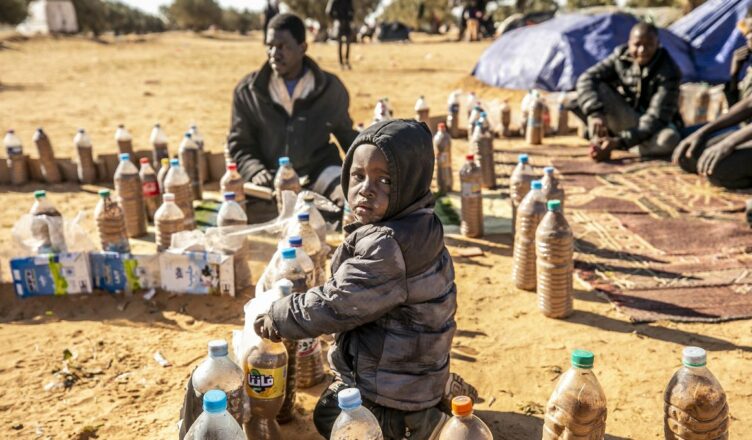Since coming to power, Tunisian President Kaïs Saïed has pursued an increasingly firm policy toward sub-Saharan migrants, a stance that has sparked intense criticism both on humanitarian and diplomatic fronts.
In February 2023, in a fiery speech, Saïed denounced the arrival of « hordes of sub-Saharan migrants, » labeling them a threat to the country’s « demographic composition. » This statement marked the beginning of a series of actions that have exacerbated tensions surrounding the immigration issue in Tunisia, particularly for the thousands of migrants from sub-Saharan Africa.
Following this speech, the situation for sub-Saharan migrants quickly deteriorated. Thousands of them were expelled from their homes and lost their informal jobs. Several African embassies were forced to organize emergency repatriations after violence and assaults targeting migrants in the streets and neighborhoods of Tunisia. At the same time, a policy of « criminalizing » humanitarian aid was implemented, with the arrest of leaders of migrant support organizations, as highlighted by the NGO FTDES.
During the summer of 2023, several thousand migrants were pushed toward the border areas with Libya and Algeria, living under extremely harsh conditions. Many were abandoned in these desert regions, where high temperatures and lack of water led to the deaths of dozens of people.
Testimonies collected by NGOs speak of unimaginable suffering, with deaths caused by thirst and the scorching heat.
In July 2023, Tunisia signed a « Partnership » with the European Union, providing 255 million euros in aid, a large portion of which is intended to combat irregular migration.
However, criticism of Tunisia’s policy is intensifying, with claims that it favors repressive and security measures at the expense of protecting human rights.
Despite repatriation efforts, the situation on the ground remains concerning. According to humanitarian sources, between 20,000 and 25,000 migrants are living in increasingly precarious conditions in makeshift camps around Sfax. These migrants, who fled conflicts, dictatorships, and unbearable living conditions in their home countries, find themselves in a deadlock in Tunisia, a country that has gradually hardened its stance on immigration.
Since Kaïs Saïed’s power grab in 2021, fundamental rights and freedoms in Tunisia have been on the decline. NGOs have condemned this authoritarian drift, which is marked by the systematic repression of dissenting voices and public freedoms, including those of migrants and human rights activists.
The Tunisian government’s migration policy seems to be an extension of this control logic, where the aim is to curb the arrival of migrants at all costs, even at the expense of international conventions and principles of solidarity.
Kaïs Saïed’s policy toward sub-Saharan immigration has thus plunged the country into an increasingly severe humanitarian crisis.

